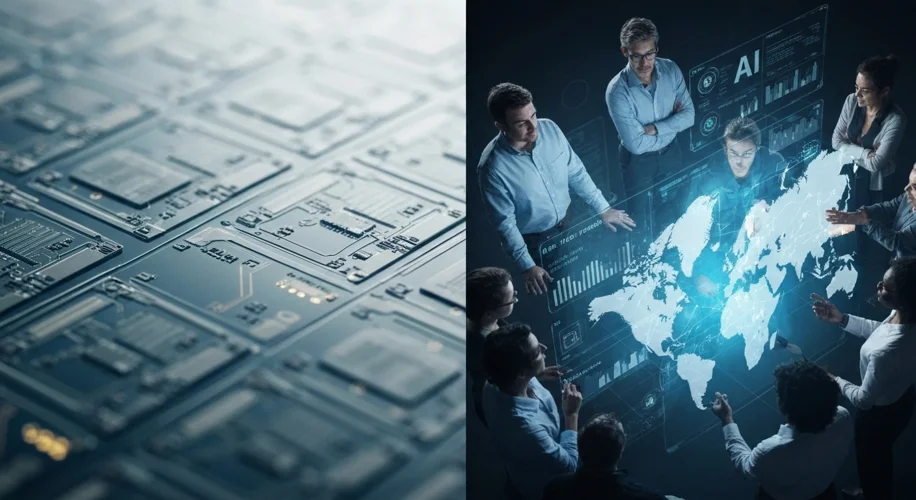It’s August 2025, and looking back at my career, the pace of technological change feels like it’s only accelerating. Today, I want to talk about something fundamental: semiconductors, the tiny engines powering our digital lives, and how they, along with artificial intelligence, are reshaping our society and economy.
We’ve all heard about AI. It’s not just a buzzword anymore; it’s becoming deeply embedded in how we work, learn, and even interact. But what’s often overlooked is the critical role of advanced semiconductors. These aren’t just faster processors; they’re the bedrock upon which AI and all modern computing are built. The complexity and sophistication of chip design and manufacturing have reached incredible levels.
Think about it: the AI models we’re seeing today, capable of generating text, images, and even code, require immense processing power. This power comes directly from the most advanced chips. As AI capabilities grow, so does the demand for these specialized semiconductors.
This surge in demand has naturally led to significant shifts in global trade and policy. The relationship between the US and China, particularly concerning access to advanced chip technology and manufacturing capabilities, is a prime example. We’ve seen policies enacted that aim to control the flow of these critical components and the knowledge to create them. These aren’t just abstract economic decisions; they have real-world consequences.
For individuals, this means changes in the job market. As AI tools become more prevalent, tasks that were once manual are being automated. This doesn’t necessarily mean mass unemployment, but it certainly points to a need for adaptation. Skills in areas like AI development, data science, and maintaining these complex technological systems are becoming increasingly valuable. The nature of work is evolving, and lifelong learning isn’t just a good idea; it’s becoming a necessity.
From my perspective, working in tech for decades, I’ve seen cycles of innovation before. Each wave brings new opportunities and new challenges. The current wave, driven by AI and advanced semiconductors, feels particularly profound. It’s not just about faster computers; it’s about fundamentally altering how we solve problems and how our economies function.
So, what’s the takeaway? We need to understand that the progress in AI is inextricably linked to advancements in hardware. The trade policies surrounding these technologies aren’t just about economics; they influence innovation and accessibility. As Arthur Finch, I believe it’s crucial for us to consider the broader societal impacts. We must ask ourselves how we can foster innovation while ensuring that the benefits are shared, and that we’re preparing our workforce for the future. The key question isn’t just if technology will change things, but how we will guide that change ethically and thoughtfully. This requires informed discussion and a willingness to adapt.

